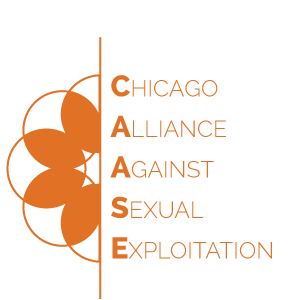Telling Someone You’ve Been Sexually Assaulted
Tips for if you decide to talk about what happened
Sexual assault can be a lonely experience, and it can make building trust with others difficult. If you want to tell someone what happened, however, there are steps you can take to ease yourself into the conversation. The other person might not know how to support a loved one who’s been sexually assaulted, but you can go in with intention.
Preparing Yourself
It’s important to check in with yourself before talking with another person. First, you should decide who you want to tell and what you want from them. You might need help finding resources, distraction, or support while you file a report. Maybe you just need someone to listen. Regardless of what your desires are, they are important and deserve respect.
Do consider, though, that certain people must report harmful situations. For example, Illinois teachers must follow specific reporting rules when they believe a minor is being hurt. If you’d like to avoid the potential of reporting, it might be best to speak with a family member or friend.
Once you have a trusted person in mind, you can recount the story aloud to yourself. Pay attention to how your body responds: Do you feel a tightness in your chest? Dizziness? Physical reactions are common when working through trauma, and being aware of how they show up can help you in the moment.
If you’re still struggling to find the right words, journaling can be a way of exploring how you want to describe your experience. Take a break if this becomes overwhelming. Go for a walk, take a shower, or doodle to make space for yourself. You don’t have to get the whole story out at once. Follow whatever pace makes sense to you.
Starting the Conversation
You might feel nervous, scared, or even ashamed as you try to begin a discussion. It’s okay to have hard, confusing emotions—many of which might put you at a loss for words. Here are some opening lines that could work for you and let the other person know what you need:
- “I am going through something that’s really hard for me, but I think it would help to have your support.”
- “Can I share something with you that I’m really not sure how to talk about?”
- “I want to tell you about something that’s difficult for me to talk about but I need help.”
It might be helpful to jot down a few other ideas on your own. Be aware of how much you want to share before the conversation starts, but keep in mind that you can say—or not say—whatever you want.
Talking It Out
First and foremost, you deserve to be believed, heard, and seen. Period. If you’re not receiving that from the other person, leave the conversation.
It’s possible that the other person isn’t comfortable listening. In some cases, they might be processing their own experiences with sexual harm. In any situation, this is your journey, and you are worthy of care and respect. Speak with people who welcome you.
If at any point in the conversation you begin to feel uneasy, you can back out. Some good ways to end things are:
- “I’m starting to feel uncomfortable and need to pause. Could we revisit this later?”
- “I’m feeling tense, and I want to respect that. I need to end here.”
- “I’m grateful that you’re listening to me, but I need to step away.”
The other person should support this decision and not push you into sharing more. If they start pressing you, set a boundary and walk away or hang up. Remember that the “block” function is there for a reason.
Afterwards
We hope the people you speak with are compassionate. Sharing a painful experience may help you heal and connect to support. But there’s no guarantee that you will get the response you need. Remember, there are resources outside of the people you know. You may decide to go to the emergency room if the assault was recent and you want to make sure you are physically okay or want evidence collected. You may also want to work on how you are feeling with a therapist. There is even free, confidential help available 24/7 on RAINN’s hotline at 1-800-656-4673. You aren’t alone, and you deserve to care for yourself.
Young people commonly ask questions about how to tell someone they have been sexually harmed. CAASE’s prevention programs cover this topic and many more. You can read about and request workshops here.
This piece was published on November 3, 2021. It was authored by KT Hawbaker with assistance from Hannah White, Ryan Spooner, and Hayley Forrestal. Learn more about our staff here.



